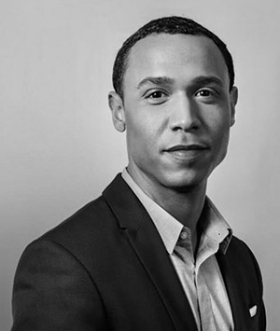Lionel Moise

Job Title
News Anchor
Company
ABC News
Degree
Broadcast Journalism
Location
New York
"I would tell any aspiring journalist not to forget how important our job is - being the voice for the voiceless."
Lionel Moise is a two-time Emmy Award-winning journalist and news anchor at ABC News, where he has been on air since 2020. Born and raised in Fort Lauderdale, he came to the University of Miami at 16 intending to study medicine but discovered his passion for journalism through UMTV. He earned his Bachelor of Science in Communication in 2010, launching a career that has taken him from CBS News in Chicago to hosting Business Insider’s top-rated business and news show on Facebook Watch.
As a proud Haitian American, Moise believes in the power of representation and amplifying diverse voices in media. He is committed to telling impactful stories, ensuring journalism not only informs but also inspires. He credits his father for instilling a deep appreciation for kindness and connection, values that shape his approach to storytelling.
A recipient of the Ronald A. Hammond Scholarship, Moise remains grateful for his time at the University of Miami, where he found his calling and built the foundation for his award-winning career in broadcast journalism.